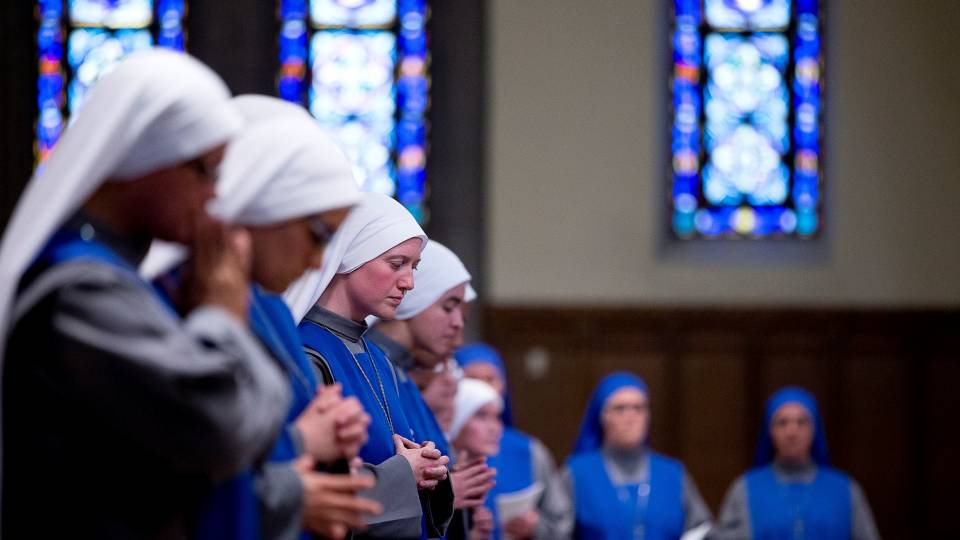SEARCH

Celibacy (from Latin caelebs = a single, unmarried person) is the personal commitment of a person to live in the unmarried state “for the sake of the kingdom of heaven”. In the Catholic Church this promise is lived out especially by people in religious orders (who take religious vows) and by the clergy (who make a promise of celibacy).This is the first thing I want you to remember when speaking about celibacy (and the married priesthood). Celibacy is not just required of priests. People in religious life, nuns, brothers, monks, friars – all of them, make vows of celibacy. They profess to live their lives by the Three Evangelical Counsels: poverty, chastity, and obedience, and in the case of an unmarried person, chastity requires celibacy. These are counsels for those who desire to become "perfect". Priests who are members of a religious congregation (called "religious priests", as opposed to "diocesan priests") make these vows. Their celibacy is not so much because they are priests but because they are people in religious/consecrated life. Diocesan priests (those who do not belong to a religious order or congregation) do not make a vow of chastity; they make a promise of celibacy. This is a discipline that the Roman Catholic Church (the Latin Rite) requires of her priests. About a month ago, I was at the Consecration Mass for a consecrated virgin. This is probably one of the oldest orders of the Church. A consecrated virgin does not belong to a religious order or congregation. She is consecrated by her bishop. But she makes a perpetual vow of virginity. In the same way, there are many lay associations or congregations that have lay associates who also make vows of celibacy. We refer to them as consecrated singles. Need I clarify that we are all called to chastity and that for anyone who is not married chastity means celibacy? It seems to me that, with all this talk about the married priesthood, we need to be careful not to lose sight of the value of celibacy. If the Church lifts the discipline of celibacy for priests and allows married men to be ordained to the priesthood, that does not mean that we are going to lose celibacy in the Catholic Church. Religious priests will continue to be celibates (as per their vows), and we will also have all the other people who live religious or consecrated lives who will continue to make vows of celibacy. Let me end with a quote by Brother Roger Schutz, founder of the Taizé Community in France:
Does the Catholic Church know what a radical reversal of values she would introduce [by abolishing celibacy]? The celibacy of priests, the folly of the Gospel, has preserved a hidden reality within it. The Church has thereby directed herself toward the invisible, toward the mystery of Christ.”Between 1979 and 1984, Pope John Paul II gave a series of 129 lectures during his General Audiences on the topic of human sexuality. As a whole, they have come to be known as Theology of the Body. Come back next week and let’s see what TofB has to say about celibacy.
 Every week, Deacon Pedro takes a particular topic apart, not so much to explore or explain the subject to its fullness, but rather to provide insights that will deepen our understanding of the subject. And don’t worry, at the end of the day he always puts the pieces back together. There are no limits to deaconstructing: Write to him and ask any questions about the faith or Church teaching: [email protected]
Every week, Deacon Pedro takes a particular topic apart, not so much to explore or explain the subject to its fullness, but rather to provide insights that will deepen our understanding of the subject. And don’t worry, at the end of the day he always puts the pieces back together. There are no limits to deaconstructing: Write to him and ask any questions about the faith or Church teaching: [email protected]